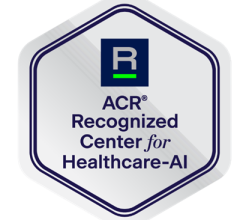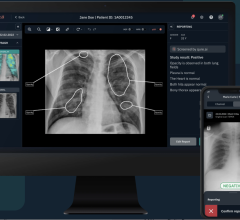
January 28, 2009 - GE Healthcare said today that it has sponsored the development of newly validated procedure-based protocols to lower CT radiation dose in children; these protocols can now be downloaded from its Web site, free of charge.
Mannudeep K. Kalra, M.D., Sjirk Westra, M.D., and Sarabjeet Singh, M.D., MBBS, MMST, in conjunction with GE Healthcare, have developed a dose-reduction solution, which lowers radiation by accounting for a patient’s weight, scan type, number of prior CT studies and 3D automatic exposure control. These parameters then direct the user to one of three “color zones,” the basis of procedure-based protocols. Within each color zone, an automatically controlled exposure level is determined by one of five weight categories. GE Healthcare has long embraced the ALARA (As Low As Reasonably Achievable) principle. These newly validated protocols represent the latest additions to its growing portfolio of dose reduction capabilities.
“With procedure-based zones, radiologists can control levels of radiation dose to the target region of interest in an efficient and seamless manner based on the three scan types: routine scans, a low dose option, or non-cardiac CT angiography,” says Dr. Kalra. “Prior publications have shown that adjusting scanning protocols to patient size or weight, particularly for children, is an efficient method for reducing dose while maintaining diagnostic quality. Published literature also shows that mA and kVp are the most frequently adapted techniques for optimizing dose to patient size.”
Upon further examination of pediatric CT studies conducted on the same patients before and after implementation of procedure-based protocols, Drs. Kalra and Singh found that, while dose can be reduced, lack of consistent use is an issue. Initially, slightly more than half of chest CT and nearly 75 percent of abdominal CT studies were performed according to the procedure-based protocols. The compliance increased to 80 percent following additional radiologists and technologist training on the rationale behind using the protocols. Drs. Kalra and Singh found a significant dose reduction without compromising the diagnostic utility of CT images when the new protocols were fully implemented.
GE Healthcare has made these protocols available, for free viewing and downloading, on the newly launched website,http://www.gehealthcare.com/usen/ct/products/ct4kids_index.html.
For more information: www.gehealthcare.com


 August 09, 2024
August 09, 2024 








